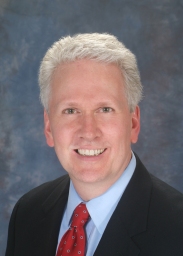I can sometimes hear the tension in my potential clients’ voices. They are seeking communications training services and are puzzled just how to go about choosing the right consultant.
They may be in search of media training for a newly promoted executive. Perhaps a keynote to a crucial trade group is right around the corner. Their CEO may have been summoned to testify before Congress. Or their workers or members may be venturing to Capitol Hill to advocate for their public policy initiatives.
They may be seeking such services for the first time. Or they may have previously experienced a bad fit (or a low quality consultant; yes, they are out there; caveat emptor).
There are several possible reasons for contracting with a consultant. Among them:
- Your internal staff does not possess the knowledge, experience, or expertise necessary to advise senior executives.
- Your team lacks the time needed to develop a long-term professional development program.
- Your executives need straight talk that your staff fears to deliver.
- Your CEO needs an independent sounding board to help him solve a vexing communications issue.
- Your current communications team has proven incapable of producing long-term improvement in your organization’s messaging and its spokesperson skill level.

To help narrow down the field and to increase the odds of selecting the right communications training consultant, I published “A Buyer’s Guide to Communications Training Consultants.” The guide includes a list of questions to ask candidates. The right answers vary from business to business since there is no single best choice across the board. So it’s important to judge the responses through your own lens.
Let’s take a look at a few of these questions today, with more to follow in weeks to come. The three questions under consideration today:
- Do you focus exclusively on communications training?
- How much experience do you have specific to communications training?
- What percentage of your business involves training specifically?
Why is a laser-like concentration on training important? The steady hand of a veteran advisor helps to polish the reputations of organizations large and small. Top consultants also understand how to provide a needed professional development program for your executives. Most sophisticated organizations regularly draw on the expertise of expert communications counselors.
Experience is important. True, we all need to start somewhere. For example, when I launched Barks Communications more than 18 years ago, I took on smaller, less sophisticated assignments just to get some experience under my belt. If you represent a small organization with a limited budget and your issues are not complex, that level of service might work for you. If, however, your messaging is more sophisticated and your executives more challenging to deal with, you need experience on your side.
Regardless of the size of your business or the complexity of your issues, never allow a generalist to take the lead on your communications training workshops for, rest assured, trouble will find you. Even in my earliest days as a communications training consultant, I stuck to my principles and turned down business that would have added to my bottom line, but detracted from my abilities to develop expertise in the training field. You are well advised to work with a pro who is in it for the long haul as opposed to someone just out to make a buck.
Savvy organizations insist that their spokespeople undergo communications training on a consistent basis. This could mean a monthly series of training workshops and consultations for one organization, and an ongoing program covering multiple executives in need of sharpening their communications capabilities. If your business has a lot of irons in the fire, you require closer and longer lasting attention. A reputable consultant will tell you that.
What other questions have you found useful when seeking out consultants? What questions would you like to have answered by your prospective communications training consultant?


Recent Comments